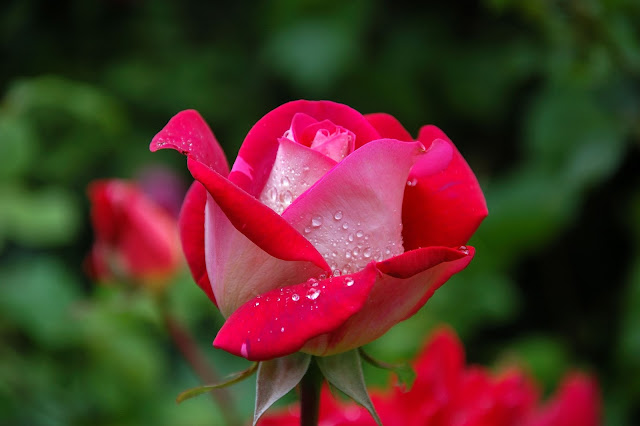What does your Birth Month Flower means?
Know your
Birth Month Flowers and its Meaning
Each month has a flower that symbolizes the
month of somebody's birth. The characteristics that the flower has may be
"inherited" by whomever is born in that certain month person.
In a cultural sense, flower characteristics such as appearance, color, and scent, have relevance as gifts. It is believed that it was the Romans who started celebrating birth and birthdays using flowers. Seasonal flowers were used not just for decoration, but also taken as gifts and therefore can probably be credited with the tradition of birth flowers. Some have been inspired by this tradition to create lists that associate a birthday flower with each of the days in a year.
In a cultural sense, flower characteristics such as appearance, color, and scent, have relevance as gifts. It is believed that it was the Romans who started celebrating birth and birthdays using flowers. Seasonal flowers were used not just for decoration, but also taken as gifts and therefore can probably be credited with the tradition of birth flowers. Some have been inspired by this tradition to create lists that associate a birthday flower with each of the days in a year.
January Carnation
February Violet
This month is associated with St. Valentine’s
Day and red roses. However, the flower for the month is Violet. The flower
symbolizes faithfulness, humility and chastity. Gifting violets in the
Victorian era conveyed the message 'I’ll always be true’. The flower is found
in shades of blue, mauve as well as yellow and cream. One must remember that an
older English name for the plant is "heart ease."
March Daffodil
This month is synonymous with the onset of
spring (in the Northern Hemisphere). Accordingly, the flower associated with
this month is Daffodil also known as Jonquil or Narcissus. The colours of the
bloom include white, yellow and orange. A gift of these flowers conveys the
hidden meaning of friendship and happiness.
April Sweet pea
This month is associated with Sweet pea flower
which bloom in a wide range of soft colors as well as two tone colors. It is
said to symbolize pleasure or good-bye. In the Victorian era, these flowers
formed a part of the bouquet which was sent to someone to convey gratefulness.
May Lily of the valley
The month of May is associated with the Lily of
the valley flower. It is generally white in colour. The flower conveys
sweetness and humility. In the Victorian era, it was gifted to convey the
romantic message ‘you have made my life complete’.
June Rose
July Larkspur
Larkspur is the flower for July. With its simple
form, feelings of open heart and ardent attachment are attributed to it.
August Gladiolus
The flower for this month is the Gladiolus. It
blooms in a variety of colours like red, pink, white, yellow and orange. It
stands for sincerity and symbolizes strength of character.
September Aster
Aster or September flower is the flower for this
month. It is found in a number of colours – pink, red, white, lilac and mauve.
The name of the flower which looks like a star is derived from the Greek word
for star. The flower symbolizes love, faith, wisdom and colour.
October Marigold
Marigold or Calendula is the flower associated
with October. For the Hindus, the month of October is associated with festivals
like Dusshera and Diwali and Marigold, although a relatively recent introduced
flower from the New World, has come to be an auspicious flower is part of
religious ceremonies. However, in the English culture, marigold stands for
sorrow and sympathy, perhaps derivative of its original symbolic association
with death in the traditions of Mexico, as in the Day of the Dead, parallel to
the Lily in Europe.
November Chrysanthemum
Chrysanthemum, which stands for cheerfulness and
love, is associated with the month of November. According to Feng Shui,
Chrysanthemums bring happiness and laughter in the house.
December Poinsettia
















Comments
Post a Comment